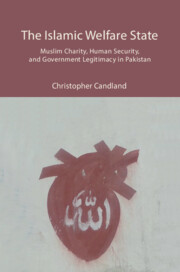Book contents
- Frontmatter
- Dedication
- Contents
- List of Illustrations
- Preface
- Note on Translations and Transliterations
- List of Abbreviations
- Part 1 Introduction
- Part 2 Piety and Public Goods
- Part 3 Pakistan
- Part 4 Charities
- Part 5 Religion, State, and Public Goods
- Afterword
- Acknowledgments
- Appendix: Charities Studied
- Glossary
- References
- Index
5 - Everyday Public Security and Insecurity
Published online by Cambridge University Press: 30 April 2024
- Frontmatter
- Dedication
- Contents
- List of Illustrations
- Preface
- Note on Translations and Transliterations
- List of Abbreviations
- Part 1 Introduction
- Part 2 Piety and Public Goods
- Part 3 Pakistan
- Part 4 Charities
- Part 5 Religion, State, and Public Goods
- Afterword
- Acknowledgments
- Appendix: Charities Studied
- Glossary
- References
- Index
Summary
August the 15th [sic] is the birthday of the independent and sovereign state of Pakistan. It marks the fulfillment of the destiny of the Muslim nation. Our object should be peace within, and peace without.
—Mohammad Ali JinnahPakistan is an ideal place to study the impact on government legitimacy of provision of essential welfare services by private religious associations and religiously inspired individuals. Governments in Pakistan have a state religion and the public is highly engaged in voluntary faith-inspired welfare work. The political dynamics concerning private religious charity, government legitimacy, and public security are therefore more pronounced and readily observed. The objective of this chapter is to fathom the depth of the human needs to which Muslim charitable associations in Pakistan are responding.
Millions of Pakistanis daily suffer severe physical deprivations; more than 30 percent of the population survive with purchasing power levels below the average for homeless people in the United States. Thirty percent of the population of Pakistan lives on the equivalent purchasing power in the United States of about US$7.50 per day, below levels needed to acquire essential food, clothing, shelter, sanitation, education, and medical care. Many residents of the United States do live like this. On any given night, more than 500,000 people in the United States find that they must sleep in a shelter, in a park, in a car, or on the street. And over the span of a year, more than 3.5 million US residents will be homeless. Such a life can be desperate. One might have to sleep in the open and perform all other daily necessities there. In Pakistan, tens of millions of people live like this and must accept that any formal education and professional medical attention is unaffordable and unobtainable for themselves and their children.2 Most Pakistanis have no indoor kitchen (47.7 percent at last census), no bathroom (43.6 percent), and no latrine (60.0 percent).
Demographics
Pakistan is the fifth most populous country on earth—after China, India, the United States, and Indonesia—and has the world's fourth-largest population of poor people—as measured by the Multidimensional Poverty Index (MPI)—after India, China, and Bangladesh.
- Type
- Chapter
- Information
- The Islamic Welfare StateMuslim Charity, Human Security, and Government Legitimacy in Pakistan, pp. 85 - 108Publisher: Cambridge University PressPrint publication year: 2024

